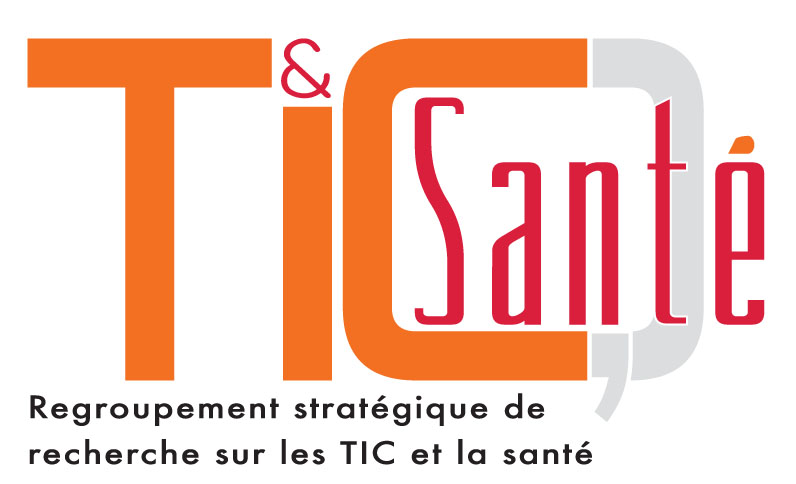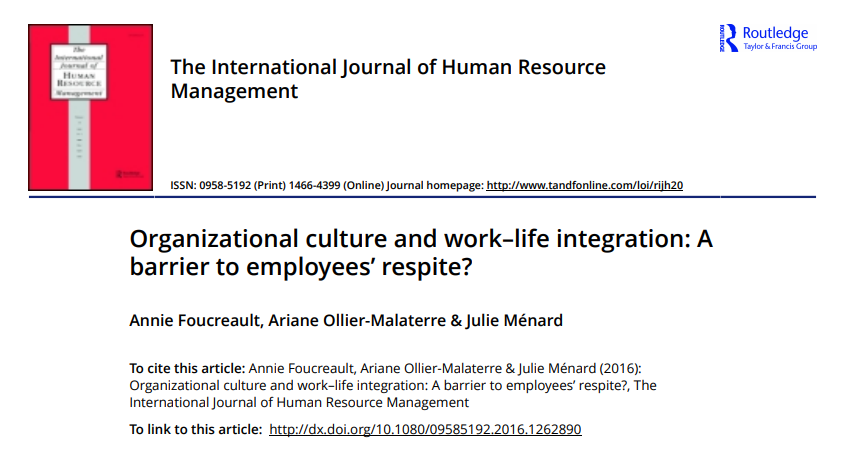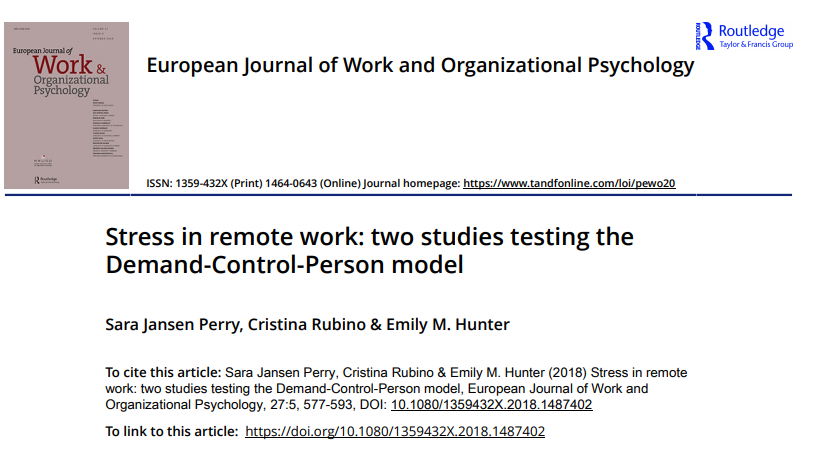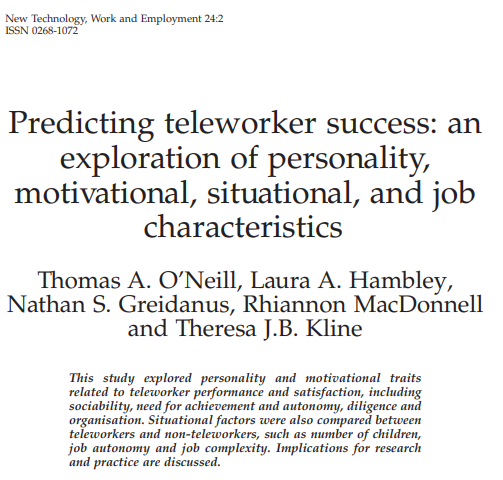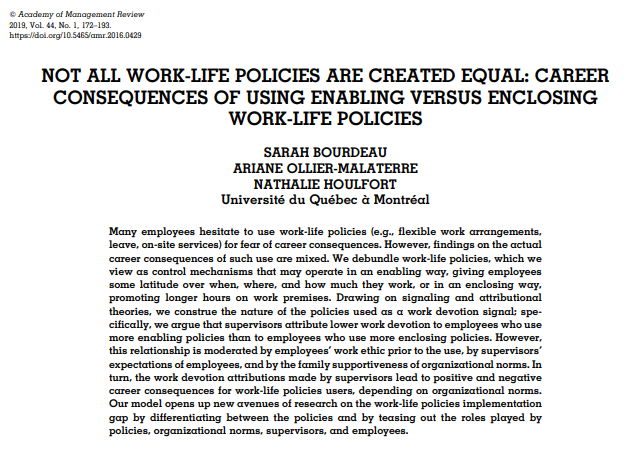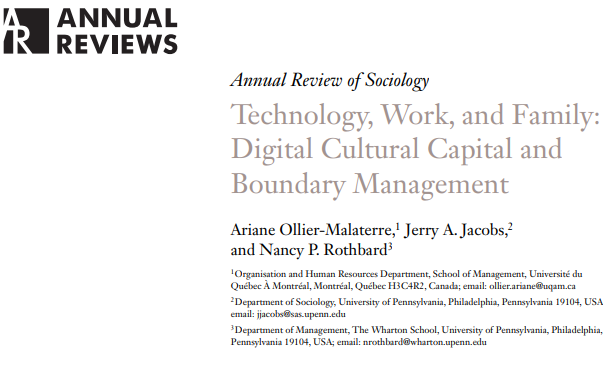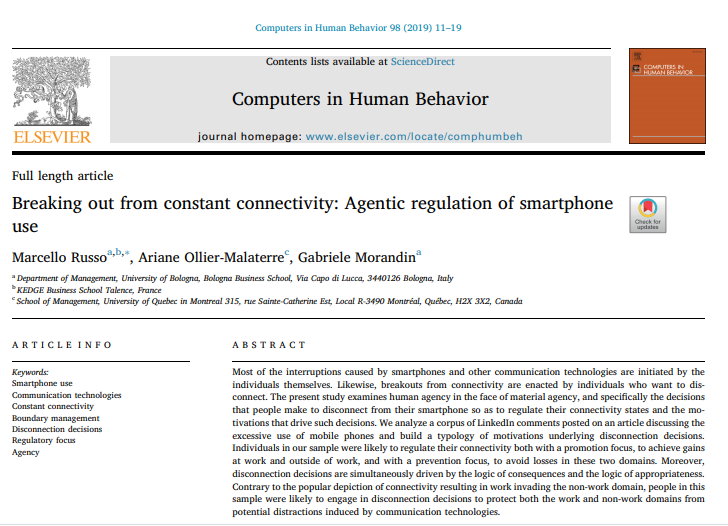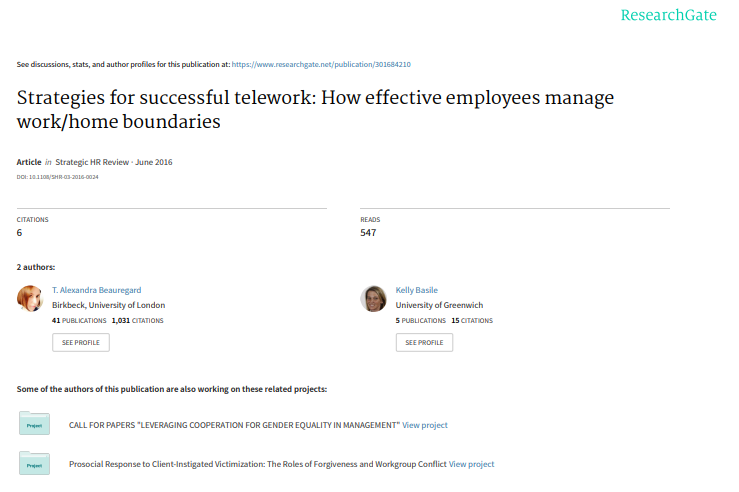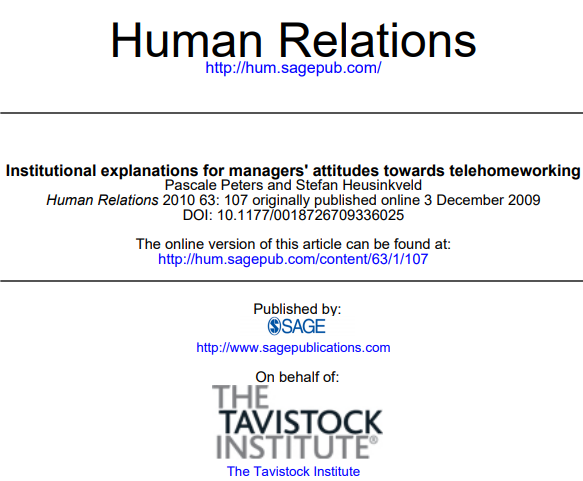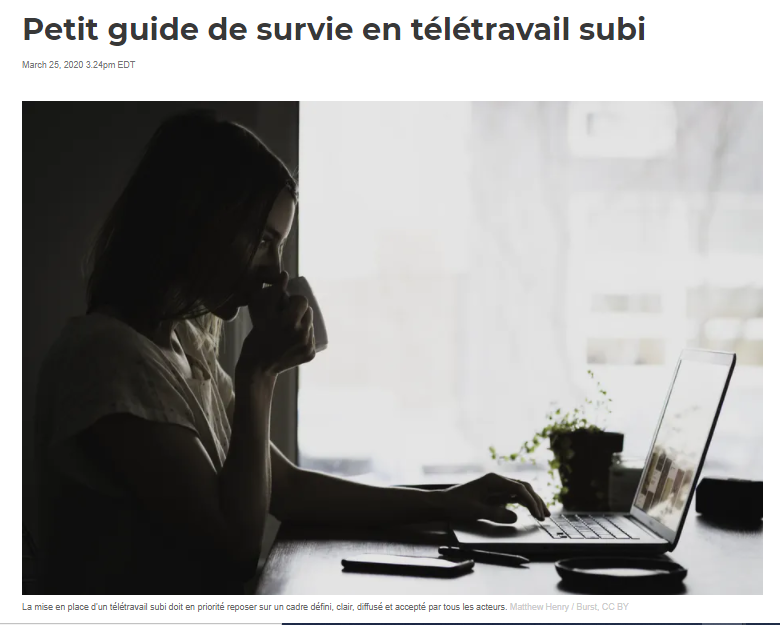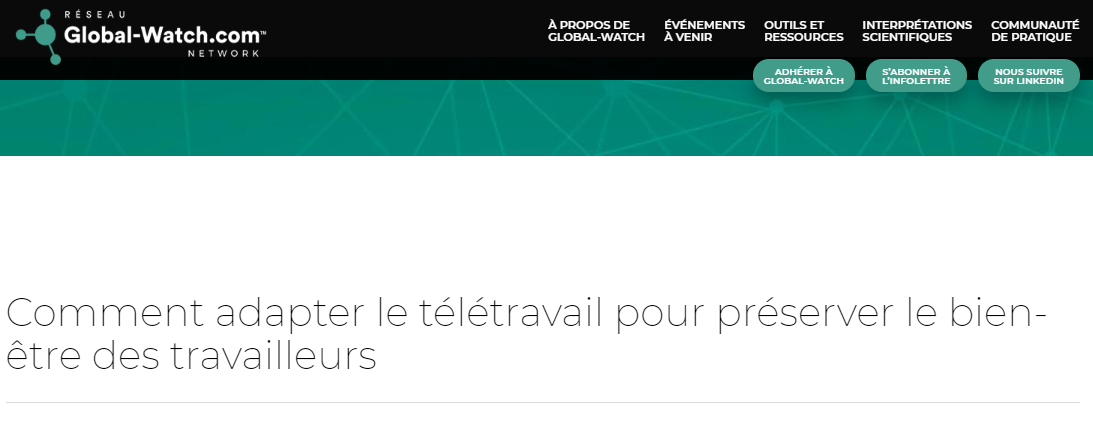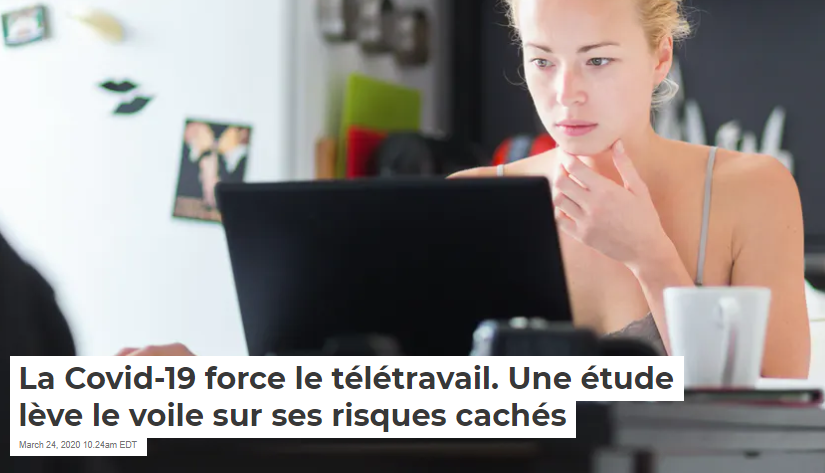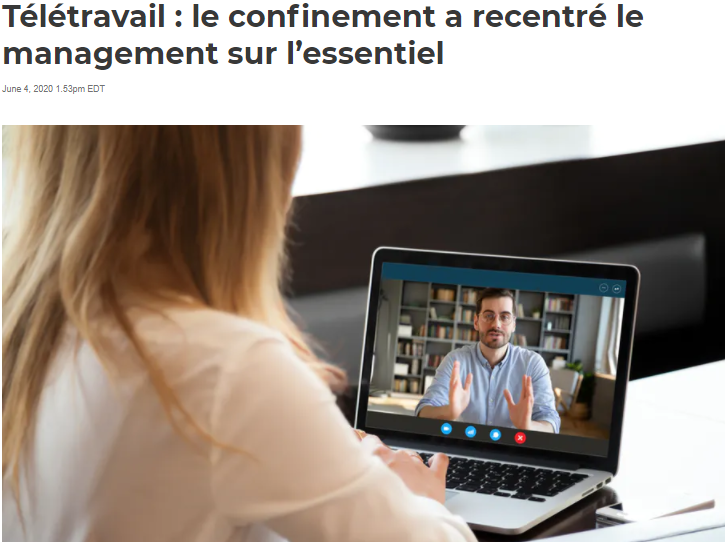Présentation des conférencières
Vidéo du webinaire
Références et lectures complémentaires
Herin, M. (2001), “Managing Telework: Perspectives from Human Resource Management and Work Psychology”, Personnel Review, Vol. 30 No. 5, pp. 602-607.
» Consulter le chapitre 7 ici : Daniel et al. Managing telework
The International Journal of Human Resource Management – 2016
Organizational culture and work–life integration: A barrier to employees’ respite?
Annie Foucreault, Ariane Ollier-Malaterre & Julie Ménard (2016): Organizational culture and work–life integration: A barrier to employees’ respite?, The International Journal of Human Resource Management
European Journal of Work and Organizational Psychology – 2018
Stress in remote work: two studies testing the Demand-Control-Person model
Sara Jansen Perry, Cristina Rubino & Emily M. Hunter (2018) Stress in remote work: two studies testing the Demand-Control-Person model, European Journal of Work and Organizational Psychology, 27:5, 577-593, DOI: 10.1080/1359432X.2018.1487402
New Technology, Work and Employment – 2009
Predicting teleworker success: an exploration of personality, motivational, situational, and job characteristics
Thomas A. O’Neill, Laura A. Hambley,Nathan S. Greidanus, Rhiannon MacDonnell and Theresa J.B. Kline
Télécharger l’article ici : ONeil et al. Predicting teleworkers success
Academy of Management Review 2019, Vol. 44, No. 1, 172–193
NOT ALL WORK-LIFE POLICIES ARE CREATED EQUAL: CAREER CONSEQUENCES OF USING ENABLING VERSUS ENCLOSING
WORK-LIFE POLICIES
SARAH BOURDEAU ARIANE OLLIER-MALATERRE NATHALIE HOULFORT
Université du Québec à Montréal
Télécharger l’article ici: Bourdeau Ollier-Malaterre Houlfort_Not all work-life policies are equal_AMR 2019
https://doi.org/10.5465/amr.2016.0429
Annual Review of Sociology
Technology, Work, and Family: Digital Cultural Capital and Boundary Management
Ariane Ollier-Malaterre,1 Jerry A. Jacobs,2 and Nancy P. Rothbard3
1Organisation and Human Resources Department, School of Management, Université du
Québec À Montréal, Montréal, Québec H3C4R2, Canada; email: ollier.ariane@uqam.ca
2Department of Sociology, University of Pennsylvania, Philadelphia, Pennsylvania 19104, USA;
email: jjacobs@sas.upenn.edu
3Department of Management, The Wharton School, University of Pennsylvania, Philadelphia,
Pennsylvania 19104, USA; email: nrothbard@wharton.upenn.edu
Télécharger l’article ici: Ollier-Malaterre Jacobs Rothbard Technology work and family ARS 2019
Computers in Human Behavior Volume 98, September 2019, Pages 11-19
Breaking out from constant connectivity: Agentic regulation of smartphone use
Marcello Russoa,b,∗ , Ariane Ollier-Malaterrec, Gabriele Morandina
a Department of Management, University of Bologna, Bologna Business School, Via Capo di Lucca, 3440126 Bologna, Italy
b KEDGE Business School Talence, France
c School of Management, University of Quebec in Montreal 315, rue Sainte-Catherine Est, Local R-3490 Montréal, Québec, H2X 3X2, Canada
Télécharger l’article ici : Russo Ollier-Malaterre Morandin Breaking out from Connectivity_Smartphones CHB 2019
IJMR – June 2001
The statuts of research on teleworking and an agenda for future research
Yehuda Baruch
Télécharger l’article ici : Baruch Status on teleworking IJMR 2001
Human Relations
Institutional explanations for managers’ attitudes towards telehomeworking
Pascale Peters and Stefan Heusinkveld
Human Relations 2010 63: 107 originally published online 3 December 2009
DOI: 10.1177/0018726709336025
Télécharger l’article ici : https://journals.sagepub.com/doi/abs/10.1177/0018726709336025
Réseau Gobalwatch.com
Comment adapter le télétravail pour préserver le bien-être des travailleurs
Charalampous, M., Sharpe, K. (2019). Interprétation scientifique Global-Watch disponible sur www.global-watch.com
